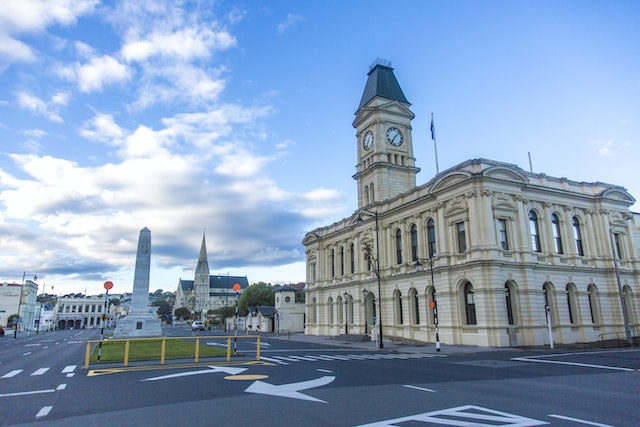First-time homebuyers? It’s exciting, but there are many things to consider before investing so much. Council rates matter. Local council rates might greatly impact your budget. In this blog post, we will examine how council rates affect first-home buyers, the pros and cons of living in areas with high council rates, ways to save money on council rates, papers first-home buyers require, and government benefits. Read more!
How do Council Rates influence first-home buyers?
Council rates are a significant consideration for first-home buyers. These rates vary depending on the local council and can impact your budget significantly. Council taxes fund essential services such as rubbish collection, road maintenance, and public parks.
First-home buyers need to consider how much they will pay in council rates before purchasing a property. It’s important to research the average council tax rate in the area where you intend to buy a house.
If you live in an area with high council rates, it may affect your affordability of mortgage payments or limit other areas of spending that could be used to furnish or upgrade the new home.
On the other hand, living in an area with low council rates might be initially appealing. Still, it could lead to lower quality public amenities and infrastructure over time as there is less funding available for these necessities.
When considering purchasing your first home, it’s crucial not only to look at housing costs but also to account for additional expenses like brisbane council rates that play a vital role in homeownership affordability.
Pros and Cons of Living in an Area with high Council Rates
can have both advantages and disadvantages for first-home buyers. On one hand, higher rates often mean better local amenities such as parks, libraries, public transport, and road maintenance. These factors increase the quality of life and attractiveness of the neighborhood.
However, on the other hand, high brisbane Council Rates may lead to financial strains for some first-home buyers who are already struggling with mortgage repayments. Higher taxes also mean less disposable income which can be detrimental to young families trying to make ends meet.
Additionally, living in an area with high Council Rates could potentially lead to gentrification; where lower-income residents are pushed out due to increased costs of living. This can negatively impact diversity in a community and limit opportunities for social mobility.
Furthermore, if property values decrease due to economic downturns or natural disasters, homeowners may still be required by law to pay fixed amounts of tax even if their incomes have been impacted.
In summary, while there are benefits associated with living in areas with higher council rates such as improved infrastructure and local services; it is important that first-home buyers carefully consider their budget before committing themselves financially.
Council Rate savings
homeowners need, but they may save money on them. Ensure the council values your property accurately. If your home is overvalued, request a reappraisal. Concessions and rebates lower council charges. Seniors, pensioners, and low-income individuals are sometimes excluded from council fees. Ask your local council about concessions.
Be aware that residential water consumption might affect council charges. Fixing leaks and installing water-efficient fixtures will minimize your council rates.If you’re planning any renovations or extensions to your home, make sure that they comply with building regulations as non-compliant structures may lead to higher rate assessments.
Paying council rates on time can also help save you money in the long run as some councils offer early payment discounts or penalties for late payments. By taking advantage of these opportunities effectively, first-home buyers can manage their finances better while enjoying their new homes without breaking the bank!
What are the documents first home buyers need to prepare
First-time homebuyers should know what paperwork they need. With preparation and information, you can navigate the procedure smoothly.ID is essential. Passports, driver’s licenses, and birth certificates are required. Utility bills and bank statements may also be requested as identification.
Income proof is essential. Tax returns from prior years or current pay stubs if you work full-time. Self-employed people must furnish two years of financial statements. Other necessary documents include bank statements showing savings history; credit reports demonstrating your creditworthiness; employment records documenting stable employment; and contract terms outlining purchase price, settlement date, and other relevant details.
This documentation must be produced in advance to avoid delays in loan approval and property settlement. As a new homeowner, having all the necessary paperwork will make the process easier!
First-home buyer government benefits
First-home purchasers are affected by council rates. Learn how they function and how to save money. Living in a high-council-rate region has perks and cons, but it depends on affordability and desire.
Fortunately, the government offers several advantages for first-home buyers that can help offset some of these costs. These include grants, stamp duty exemptions or concessions, and access to affordable housing schemes.
It’s essential for first-home buyers to educate themselves on these incentives so that they can take advantage of them when purchasing their property. By doing so, they may be able to save thousands of dollars in upfront costs and ongoing expenses such as council rates.
Buying your first home is a big step towards financial stability and independence. While there are many factors involved in this process, understanding how council rates affect you is crucial for making informed decisions that will benefit you both now and in the future.
